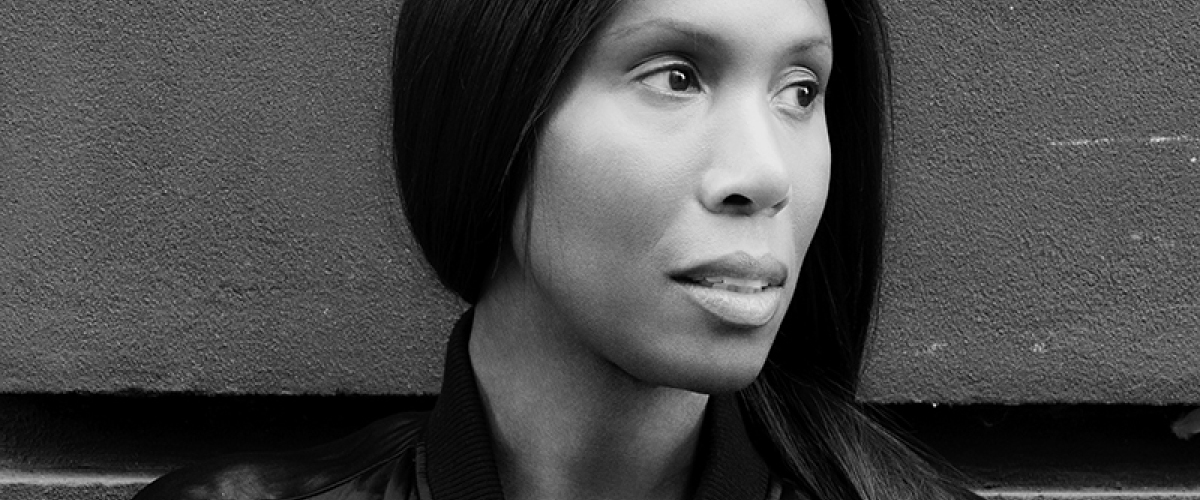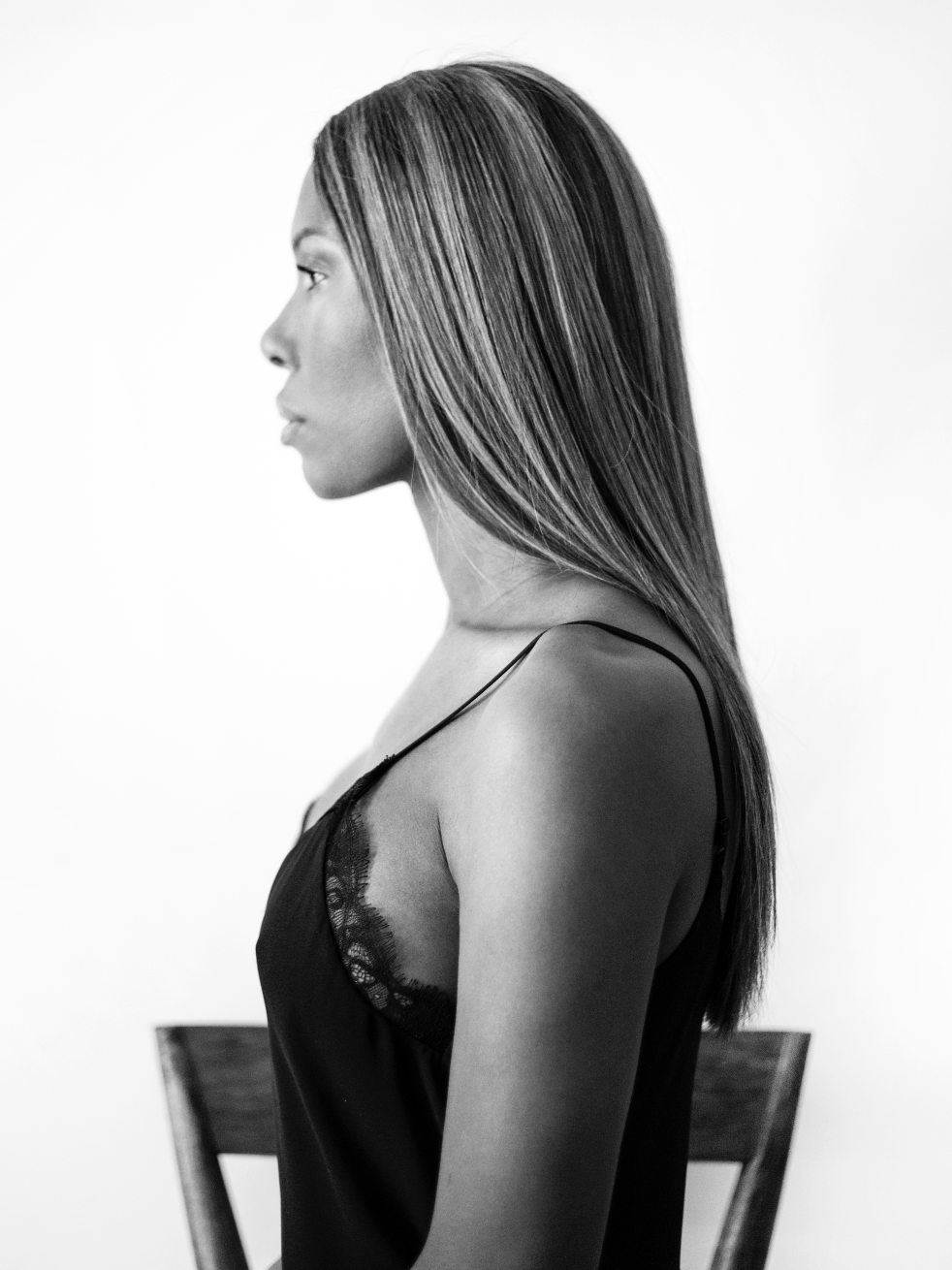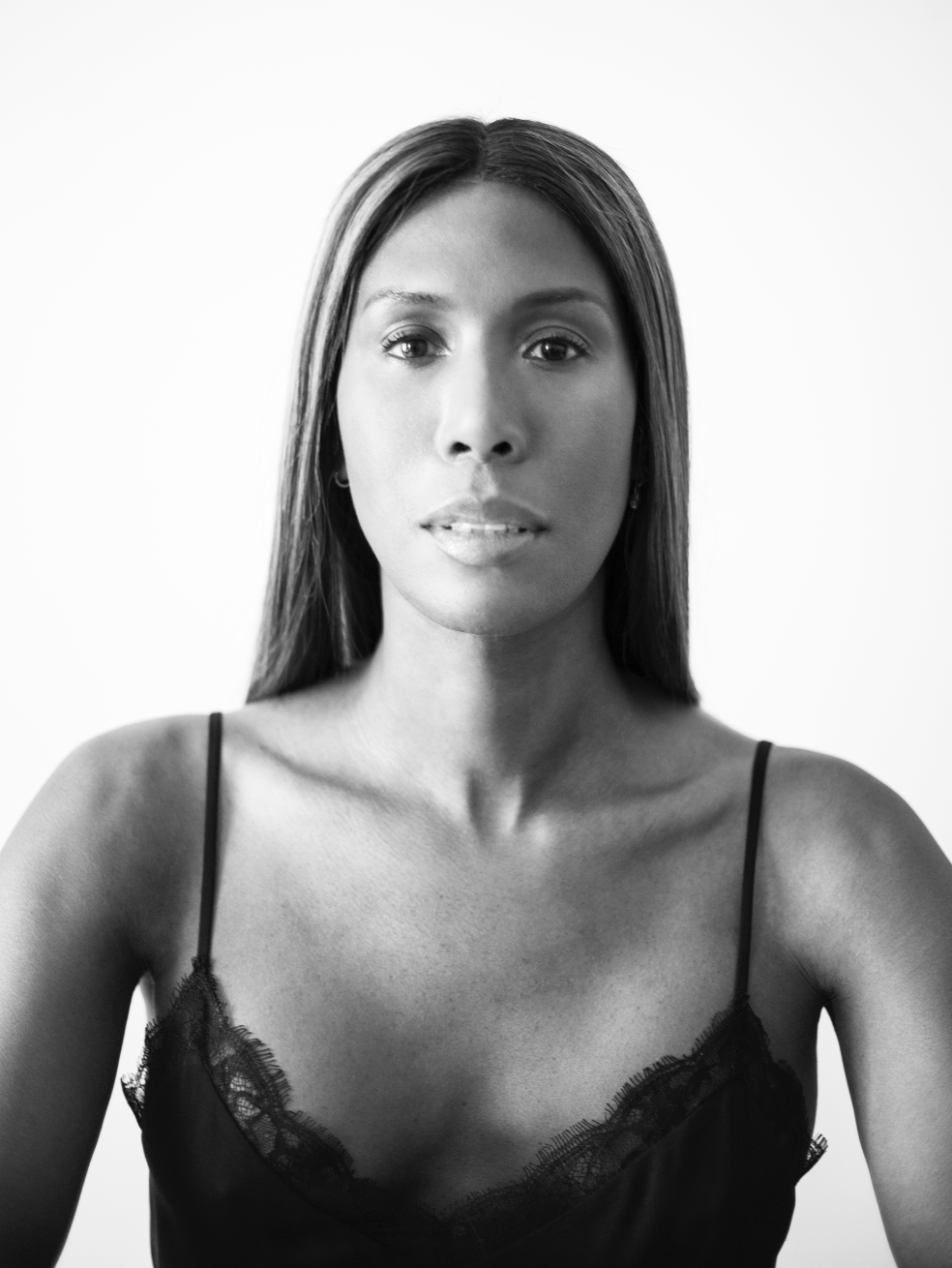Real Talk: Honey Dijon on What it Means to Be a DJ
The house music mainstay muses on the artform behind the mix.

Honey Dijon will be performing alongside Ricardo Villalobos, RPR Soundsystem, Black Coffee, Âme, Nina Kraviz, and more at SXM Festival, which takes place March 15-19 in St Martin. You can grab tickets to SXM here.
When it comes to the ethos of house and techno, there aren’t many artists alive that better fit the bill than NYC producer and DJ Honey Dijon. Born and bred in Chicago and mentored by Derrick Carter, Honey was truly enamored with electronic music’s culture from an early age; DJing and mixing has always been seen as a true artform to Honey, and the club and party scene—especially following a move to New York City—a sanctuary and safe place for performance and expression.
At once subtle, powerful, and emotionally driven, Honey’s sets are hard-to-define experiences that shrug off genre constraints with a deft touch. With gigs at some of the best venues around the world including, among many others, Panorama Bar, The Block (Tel Aviv), Sub Club, Output, Smart Bar, and Space Ibiza—not to mention the countless warehouse spaces and gallery’s she has played—many have witnessed Honey’s dancefloor mastery; and for those who haven’t, make it high on your priority list.
Outside of the club environment, Honey and her musical curation are ingrained in the fashion world where she has selected and compiled music for Louis Vuitton’s men’s shows—a partnership that has seen her collaborate with legendary producer Giorgio Moroder—and dazzled at innumerable parties for industry power players such as V magazine, Narciso Rodriguez, Hermès, Balenciaga, and Givenchy. Honey is also an in-demand speaker on issues surrounding gender in club culture and just this last weekend she performed and spoke on gender and electronic music at MoMa’s PS1 alongside Genesis P Porridge of Throbbing Gristle and DJ Sprinkles.
Although a DJ first and foremost, over the years, Honey has released a steady stream of classicist house cuts and remixes on Derrick Carter and Luke Solomon’s Classic Records, Stereo Cool!, Rampage, and Nervous Records, and in summer, an album is on the way via Classic.
When looking for an artist to discuss DJing for an edition of Real Talk, it was quite obvious we should look no further than Miss Honey Dijon.
A very well known and respected artist recently asked me what my role is as a DJ. I’ve never been asked that question before, and I really didn’t know how to respond. What drives me to put up with incessant travel and lack of sleep? Where do I find strength to overcome the constant pressure and consistent judgment and criticism, both from others and myself? I flipped the question back on him, “What do you think is the role of a DJ?” He told me that his craft allows him to bring people from all walks of life together. He said that through music we can communicate, celebrate, share, and find joyful experiences outside of the ones we’re familiar with. He dubbed our role as artists as ambassadors of human connection through sound. I thought that was a great answer.
“….you can’t maintain constant evolution and innovation if you are more concerned about what you get out of it instead of what you put into it.”
The question I’m most often asked though isn’t about my role as a DJ, but rather about how I got there. What do I have to do to become a DJ? is a question I’m repeatedly asked. I always feel like people want a quick and simple answer. There isn’t one. When your focus is on the goal of “being a DJ,” it’s easy to lose sight of what it means to actually be one. There’s a lot of fantasy attached to what most people think a DJ is and does. They see fame and spotlight, the rock ‘n roll lifestyle, jet-setting to festivals and clubs around the globe. True, those things might define you as DJ, but that has no bearing on what it means to make a great artist. A great artist to me elevates the human spirit. Perks are great, but you can’t maintain constant evolution and innovation if you are more concerned about what you get out of it instead of what you put into it.
What many great artists I know have in common is their love of sound. Like my friend said earlier, sound is what connects us. And more than that, it’s what excites us. I’m just as excited today as I was when I went to my first club years ago. When I discover a new artist I really love, I get the same goosebumps I’ve always gotten. Rimbaudian on the underground UK house label Meda Fury does that for me. Just really dirty and funky house vibes that feel fresh. When I started collecting music I had no idea I wanted to be a DJ. I just loved music. I grew up in a home where we shared music constantly. It was intergenerational; my parents would play me music that they loved and were excited about, and my sister and I did it in return. They would throw on Curtis Mayfield for us to listen to and I would play the latest Larry Heard tune. There was no judgment. They never said, “This music was better back in my day,” and we never called their taste old-fashioned. We were just open. That taught me a very valuable lesson early on; to be open to all types music no matter the age, origin, or genre. Time is a continuum. Past, present, and future all coexist together. No matter when the music was released, quality always endures and continues to inspire. I love everything from the soulful sound of Motown, the complex compositions of Miles Davis, the innovative use of arpeggiation from Giorgio Moroder, the quirkiness and downtown sensibility of the B’52s, and the polyrhythmic techno of Jeff Mills. It all resonates with me deeply.
“We dug deeper. You did whatever it took to be unique so that when people came to hear you, they knew who was playing before they even stepped onto the dancefloor.”
Traveling around the world exposes you to many different cultures and sounds that you get to experience so much through a love of music. You can discover new genres, new dance moves, new labels, new techniques, new styles. Before the advent of the internet, there were fewer places to get music. There was a lot less music being released and it was a much smaller community. In Chicago where I was schooled, the selection was just as important as your skills. everyone had the same records, so how could you make yours sound different or stand out? Well, you layered tracks from different genres and you found your own unique ways of blending and working the tracks to make them our own. We dug deeper. You did whatever it took to be unique so that when people came to hear you, they knew who was playing before they even stepped onto the dancefloor. No one exemplified this more than Derrick Carter. Derrick’s imagination is limitless and he took house music to the next level for me. His use of accapellas, his mastery of the blend, the blurring of genres, speeding things up or slowing things to fit into a mix, taking familiar music and flipping it in a way that it feels new and different. For example, taking a movie soundtrack and layering it over techno or taking a gospel tune and mixing it with acid house. He pushed me to really think of music as theater, and taught me to be innovative by thinking outside of the box.
These days we’re witness to thousands of new tracks every week. The supply has outweighed the demand—almost. There are still thousands of artists already on the map, and new ones cropping up so frequently that it’s become more crucial than ever to develop a sound, a technique, and a vision that is uniquely yours. That kind of deep knowledge—or at least a thirst and openness for that knowledge—goes a long way in creating the depth as an artist. It’s what also sustains a career. Never compare what you do to others. Master your own voice so that it can never be duplicated. There is already one artist that does what they do well, the world does not need two. There are no shortcuts for hard work and dedication.

Another thing that makes a great DJ is simply experience. Only by playing constantly and consistently for different crowds can you strengthen that muscle. It’s a luxury I don’t take for granted. It’s not an easy task to be able to walk into a room full of strangers in a foreign country and be able to not only entertain and engage them but to connect to them emotionally. That takes skill. One of the things that I feel is missing these days in clubbing is the cross-pollination of people and cultures. As a result, the music and the experience that goes along with it has become homogenized. The gays go to the gay clubs, the techno kids won’t go out to hear house DJ’s, and soulful house fans will rarely seek out progressive music. Everyone finds their lane and stays in it. This is a mistake if you are a DJ. Take inspiration from everything and everywhere, find out what you like (and don’t like) in other genres and from other dance floors and use it to bring back to your audience. I’ve always felt that there is enough sunshine for everyone. Keep learning because it’s the only way to really grow as an artist.
When I started clubbing, I was fortunate enough to be in the right place at the right time during the cultural movement that we now know as house music. It was predominately heard and played in gay black clubs at the time. There was Rialto’s on the South Side and Club LeRay’s on the Northside. The latin gay bar Normandy’s in Boystown and the trans club Cheek’s in Lincoln Park. All types of people went regardless of sexual orientation or gender. What was so special about that experience was that the club was like a temple. Sometimes I still feel that today: that escape from the oppression of being a marginalized person, freedom in a place that celebrates diversity, openness, expression, and sexuality. The DJ was the shaman guiding you through a portal of connection through sound. At that time, there was no superstar DJ. The music was the star. In fact, you rarely even saw the DJ. They were usually hidden in the back of the room or high above the dance floor, an invisible force of nature. DJs earned their stripes through their selections, and their skills, nothing more. No waving of the arms, no fist pumping, no pyrotechnics. The music had to stand on its own, and it did.
Perhaps the best way to get to know a DJ was to frequent an artist’s residency. Regular club-goers got to know your style, what you were about as an artist, and you developed a following organically. I miss that these days. Residencies are a rarity now. Now it’s about what records you put out and on what hot label of the moment. We now know that a great producer does not make a great DJ and vice versa. Very few are blessed with that gift. Danny Tenaglia has that gift. His residency at Twilo changed my life. He would play 12-14 hours straight and you became so familiar with his music that you could tell what type of mood he was in just by his selection. If he was playing really hard you knew he wasn’t in a very good mood; if he was playing lots of new music that you hadn’t heard in the previous weeks you knew he was feeling inspired. You can only get this experience from artist residencies. We have so many festivals and parties these days with endless lineups with set times cut to just a few hours, sometimes less, that I don’t think it’s possible to really get to know an artist or to be taken on a journey with a DJ set. To me, this is where you really learn to pace yourself, command a room, keep people on their toes with anticipation and excitement, and master your sound.

Playing big rooms and intimate venues, opening and closing sets, that is another art form in itself. That takes time, so be patient with yourself. Don’t underestimate the simple fact that playing music you’ve selected to an audience takes courage, conviction, personality, and perseverance. Sure, some people get lucky: they fall in with the right crew, make a record that blows up, there’s a buzz around what they’re doing. Buzz doesn’t mean longevity. I’ve listened to many DJs from the early eras and I think the reason they made it to where they are was not about them or their status, but about the experience they were able to create. Like my friend said, it’s the bringing together of people, the celebration of love, the tribal gatherings, like bees dancing together to make honey.
When it all comes down to it, there are many different paths to take. One of my favorite DJs always says, “I want to show up, bang those beats, turn your party out, and by the end of the night be your favorite DJ.” Again! After 30 years, he still has the hunger and passion for destroying the dancefloor, and that fire remains the most inspiring thing of all. I want to inspire others through music to create their own sound, to build their own community, to connect people, and to introduce and celebrate difference. Being a DJ can be more than just creating a soundtrack to someone’s Saturday night. A night of good music can shape who you are and expand you as a person, and that to me is the best reason to become a DJ.

